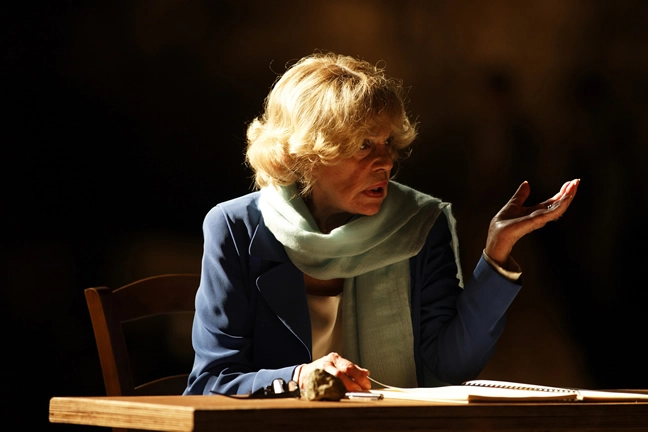La Guerre des fils de lumière contre les fils des ténèbres
January 06 2010 to January 10 2010
Freedom shall be our shroud.
Flavius Joseph
This theatrical performance of spoken and sung oratorio, borrows for the most part, from The War of the Jews, where the historian Flavius Joseph tells the story of the destruction of the Jewish sovereignty by the Roman empire during the first century BC. Amos Gitai has always appreciated the complexity of this work. Because Flavius Joseph, as his name indicates, has a foot on both sides. Son of an important family of religious clerics, he is active in the first Judeo-Roman war as commander in chief of the Jewish troops in Galilee. Captured, he manages to save his life by working for the Roman Empire - an empire, which did not exclude, quite to the contrary, the glorification of oppressed peoples. Following in Joseph's footsteps, Gitai went off to Massada to film, where the ruins of the fortress defended by the last Jewish patriots stands. According to the historian, who is our sole source concerning these events, the besieged Jews committed suicide after a resistance movement that went on for three years in order to escape forced slavery. In this dialogue that shouts through the centuries and is orchestrated by Gitai, the voices echo, murmur and clamor, sing, make music, move from one language to another, embodying one power, then the other, occasionally clouding over the lines between the two : in this rustling of voices where French, Hebrew, Yiddish, Arab and English echo and answer each other, how can one possibly situate an identity ? Seven narrators embody the exiles from the different countries represented in the story. Four of them take turns speaking the words of the main actors. Amongst them are Jérôme Koenig (who will be playing the role he created at Gibellina). Jeanne Moreau will join him for this unique occasion, first at the 2009, Avignon Festival at the Carrière de Boulbon, then in the Odeon theater's Grande salle.


